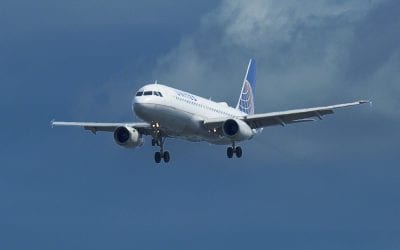No one likes to sit near someone with the sniffles or a cough on the plane, but what about the very real prospect of your seatmate having swine flu? If current airline policies continue, those who have flu-like symptoms and heed the Centers for Disease Control warning to “stay home and avoid travel for 7 days” will face hundreds of dollars in airline fees and penalties. How many will still fly despite their illness and the chance of spreading it?
An unprecedented national effort is being waged to limit the impact and spread of the H1N1 flu (swine flu) virus. Millions of vaccine doses are now being distributed across the country, health care workers are being inoculated en masse, government workers have new medical leave policies, schools are being closed and the head of the Centers for Disease Control (CDC) warned, “We have not had a flu season like this in at least 50 years.”
Neither the airlines nor the Department of Transportation (DOT) have made a meaningful response to this pandemic as it sweeps the country. Basic common sense tells us that airplane flights — putting large groups of people in a small, contained space — will facilitate the spread of this virus.
So far, the airline industry’s sole response has been to remove pillows and blankets from many aircraft. Plus, spokespersons for the airlines have said, “If you are sick, stay home.” Yet, our airlines are actually punishing passengers who choose to not fly when infected. The airlines can and should change policy to help slow the spread of H1N1.
Airline passengers have to pay change fees of as much as $150 for domestic flights and $250 for international flights when they opt to change a flight. Then, they are required by the airlines to pay the difference between the original price paid for their flight and the current airline price. (When comparing the cost of an advanced-purchase ticket with the cost of a flight leaving next week, that difference can be dramatic. In fact, it can be up to four times as much or more.)
Getting more people with flu symptoms to comply with the CDC’s suggestion about travel when ill with the flu would be greatly facilitated by the airlines allowing passengers with a health professional’s letter indicating that they have or may have H1N1 to be allowed to reschedule their trip at no additional cost.
Just think of the difference airlines could make in limiting the spread of H1N1 by being proactive and making these changes immediately. But, absent any changes in policy by the airlines, the DOT, in consultation with the CDC, should get in gear and mandate that the airlines eliminate their change and cancellation rules that punish passengers for being good citizens.
During this flu season, swine flu shouldn’t fly. Dropping the airline penalties will help make this happen.
The Consumer Travel Alliance, a non-profit, membership organization is keeping consumer issues in the forefront of Washington’s legislators and regulators. Click here to support their efforts.

Charlie Leocha is the President of Travelers United. He has been working in Washington, DC, for the past 14 years with Congress, the Department of Transportation, and industry stakeholders on travel issues. He was the first consumer representative to the Advisory Committee for Aviation Consumer Protections appointed by the Secretary of Transportation from 2012 through 2018.




